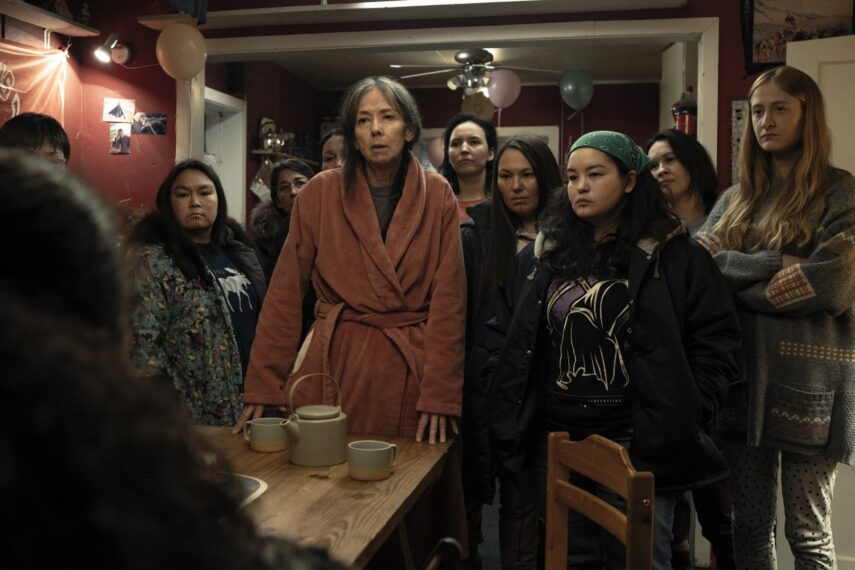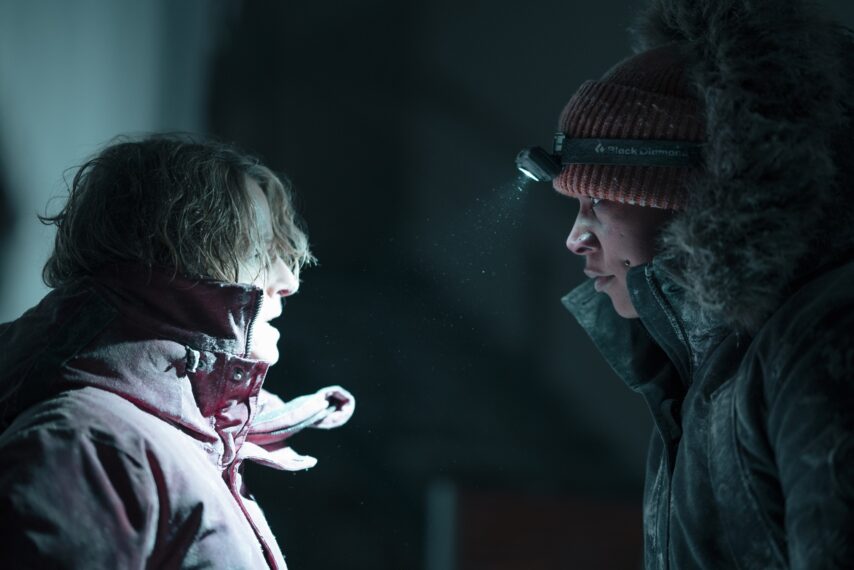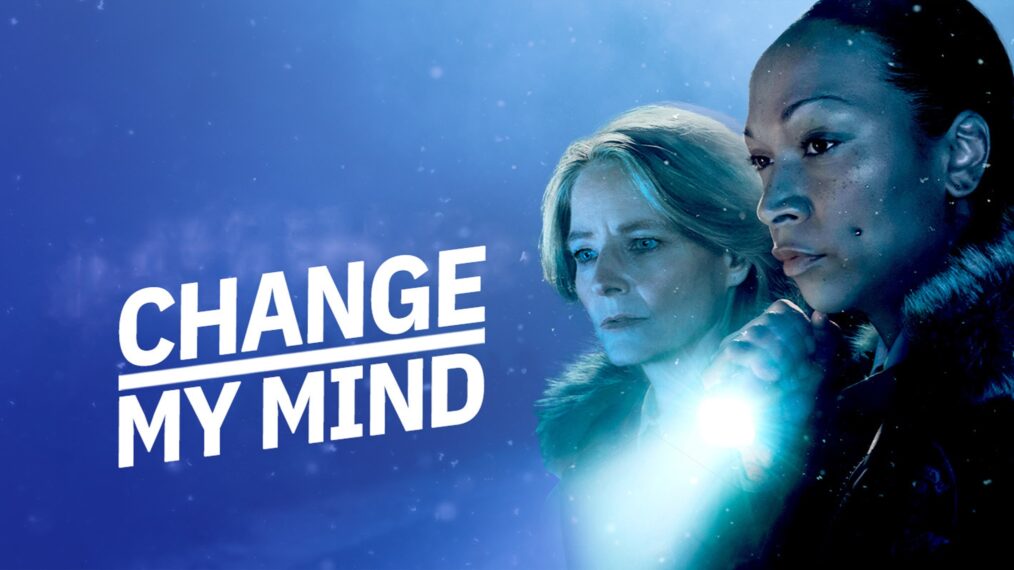[Warning: The below contains MAJOR spoilers for True Detective: Night Country Season 4, Episode 6, “Part 6.”]
True Detective: Night Country was not only a great season of television, but also a rejuvenating entry for the HBO franchise itself as the series set its spotlight on detectives Liz Danvers (Jodie Foster) and Evangeline Navarro (Kali Reis).
Arriving ten years after its lauded first season starring Matthew McConaughey and Woody Harrelson, True Detective‘s fourth season (helmed by the talented Issa Lopez) breathes new life into the show after less satisfying second and third seasons. If you need cold hard proof, look no further than the ratings.
Night Country was certified fresh by Rotten Tomatoes where it received an overall critic score of 92 percent, compared to Season 1’s 91 percent, Season 2’s 47 percent, and Season 3’s 84 percent. For a second take on the season ratings, Metacritic‘s breakdown gives Season 1 87/100, Season 2 61/100, Season 3 72/100, and Season 4 81/100.
In both cases, Night Country is among one of the top seasons of the series overall, reaching a similar level of praise that Season 1 received. But further proof of the season’s vitalness to the series’ overall future is in the numbers as the audience made Night Country True Detective‘s most-watched season with an average of 12.7 million viewers per episode since the January 14 premiere.
(Credit: HBO)
While Night Country may not resonate with every viewer who felt more impacted by past seasons, it takes familiar elements and repackages them in a refreshing way that is tinged with supernatural motifs, the weight of trauma, and a larger message about the treatment of missing and murdered Indigenous women as well as the environment.
Additionally, Night Country serves up a satisfying conclusion, tying up most, if not all, major questions by the end of its sixth episode. The six-episode run was also shorter than prior seasons, giving it a slight advantage when it comes to delivering a more concise story. In the finale, truths are unearthed with a twist, not unlike Season 1’s killer groundskeeper Errol Childress (Glenn Fleshler).
Sure, the Tsalal scientists being responsible for Annie K’s (Nivi Pedersen) death wasn’t altogether surprising, but the cleaning ladies being responsible for the scientists’ demise? That’s a twist that was hinted at more than once throughout the season, but as Danvers would say, some viewers just weren’t asking the right questions.
When Danvers questions Bee (Diane Benson) in Episode 2 about any weird events at the Tsalal Research Station, the woman replies, “They never spoke to us. We’re just the cleanin’ ladies.” In most instances, when a character in a murder mystery uses the word “just” to describe themselves, it’s usually a marker of suspicion.


(Credit: HBO)
Additionally, when scientist Anders Lund (Þorsteinn Bachmann) wakes in the hospital, he tells Danvers and Navarro “She came for us,” but never elaborates who that “she” is. While we’re left to assume that it’s Annie’s ghost (and it very well could be), the remark serves as a red herring to their demise as they were left for dead in the cold by the cleaning ladies who sought revenge after uncovering the truth about Annie’s death through observations around the lab and police station.
It is through Raymond Clark’s (Owen McDonnell) confession and the women’s story that three major mysteries are unlocked. We understand who killed Annie K, who sent the scientists to their graves, and what was really going on with the mines and Tsalal as they conspired to raise pollution levels, harming the surrounding Indigenous community of Ennis for “the greater good.”
As for the supernaturalness of it all, Night Country‘s use of ghosts and apparitions lines up with the Indigenous angle of the season. As star Isabella Star LaBlanc, who plays Danvers’ stepdaughter Leah told us earlier in the season, “As an Indigenous person, all of the supernatural elements just feel so Native to me because of how I was raised with a belief that we don’t know everything. Not that we know that there are supernatural elements, but we just don’t have answers for everything. That’s what I kind of love about it.”


(Credit: HBO)
Regarding not knowing everything, there are two things left open to interpretation by the end of Night Country, which are how Annie’s tongue ended up at Tsalal Station, and what really happens to Navarro who goes “missing.” According to Lopez who spoke to the Los Angeles Times, there are two avenues one could follow to explain the tongue. In both situations, Hank (John Hawkes) cuts out the tongue, with the supernatural angle being that it disappears until the men at Tsalal are forced to face their fate.
The more rational version Lopez revealed involved Annie’s community finding her body before the police, collecting her tongue, and freezing it until it’s returned to Tsalal. “You can decide which one you believe,” Lopez stated.
With that mystery resolved by Lopez, Reis helped resolve Navarro’s ending when she spoke to us about the fate her character faces. “I love the editing so much because it’s so open-ended. But it still matches up with the same theme that has been kept on through the whole series from Episode 1, meaning you have your logical, rational, tangible solution that’s going to be shut and closed, and then you have the spiritual unknown and supernatural aspect of it. But it’s all suggestion,” Reis said. “You get to choose if she did follow in her sister’s footsteps.” And if Navarro did decide to walk into the sea like Julia (Aka Niviâna), Reis shared, “She’s finally done everything she has [to]… If she stayed, she was finally at peace.”
It’s a satisfying conclusion as Danvers and Navarro overcome the traumas that were weighing them down all season, reaching a sense of peace and stability akin to what Marty (Harrelson) and Rust (McConaughey) experience in Season 1’s conclusion. Not all hardship is resolved, but the darkness faced by all isn’t so dark anymore. This is literal for Danvers and Navarro as their story ends with daybreak after the long night of winter in Alaska.
One could argue that Night Country‘s overall message about the importance of recognizing marginalized Indigenous communities, their missing women, and the impact pollution is having in less publicized areas of the globe is a reminder that you can convey a lot with good television and storytelling.
If anything, Night Country raises the bar once again on a franchise that started so strongly in its first season, giving HBO and fans a reason to yearn for more. But what did you think? Can you change our minds? Sound off in the comments section, below.
True Detective: Night Country, Streaming now, Max
This story originally appeared on TV Insider

